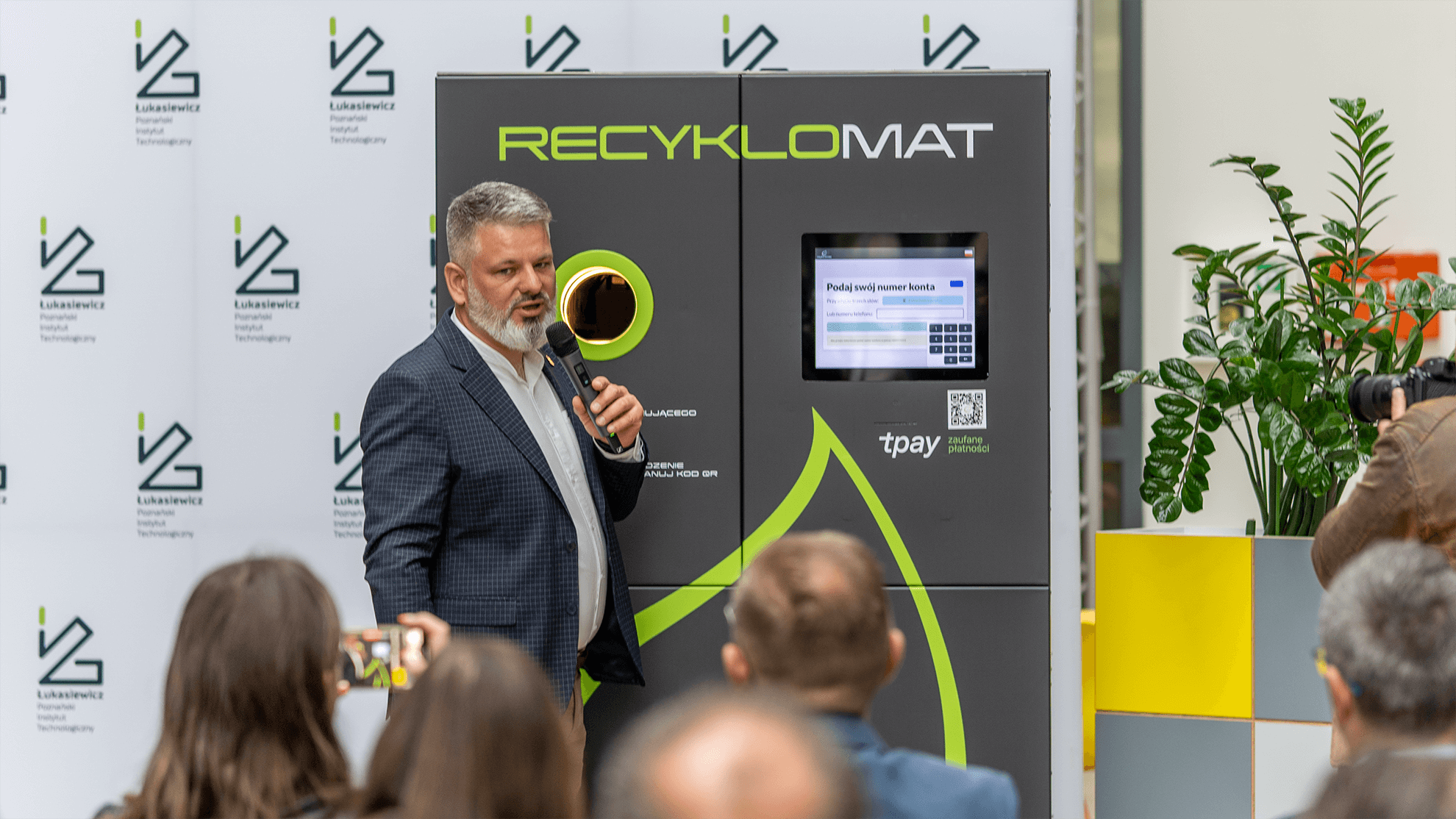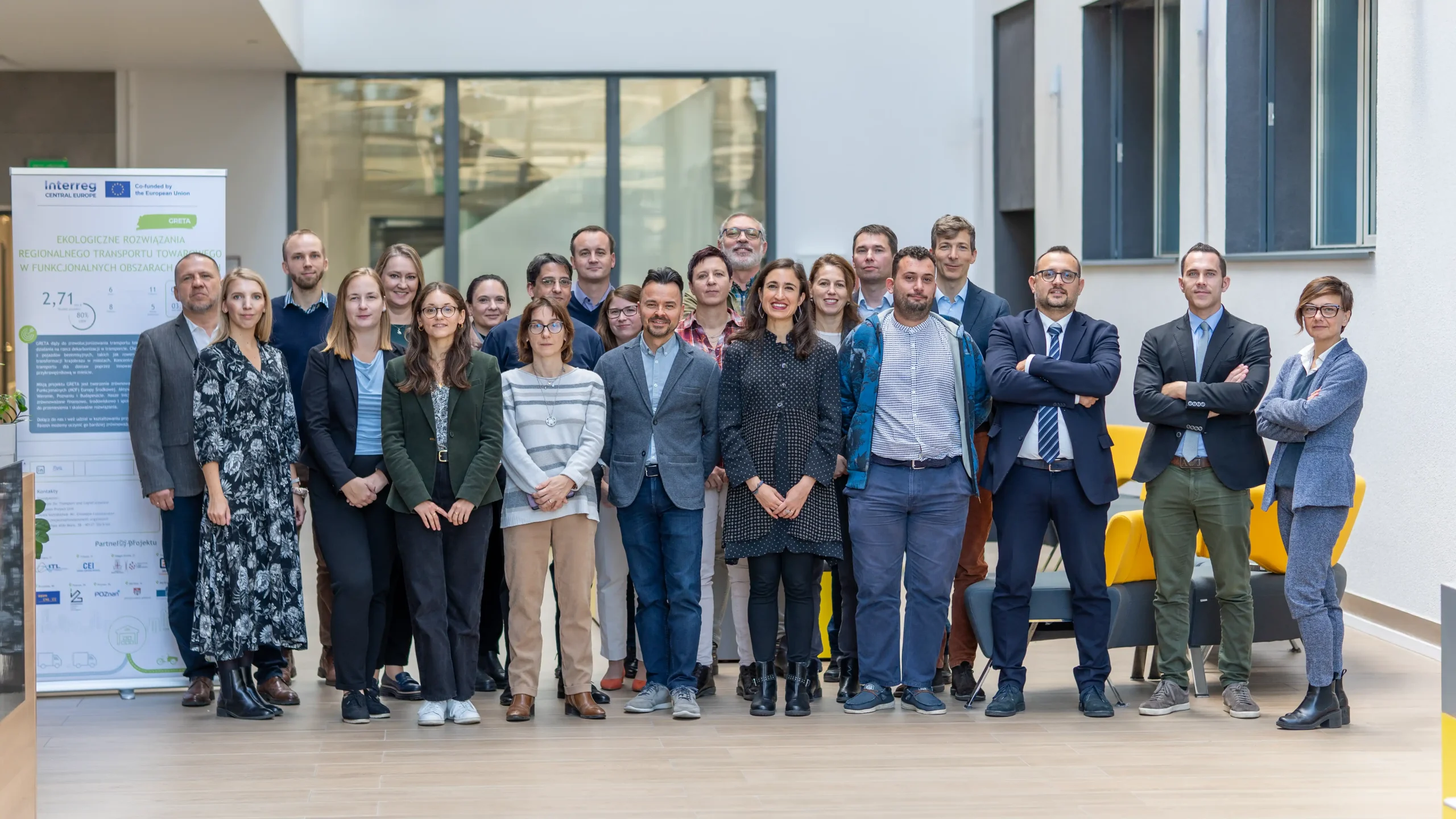First step towards an autonomous tram in Poznań

Next year, the first tests will begin at the tram depot in Poznań’s Franowo. Experts from Łukasiewicz – Poznań Institute of Technology in cooperation with Miejskie Przedsiębiorstwo Komunikacyjne (MPK, Municipal Transport Company) in Poznań are working on the development of an autonomous tram control system.
– Poznań is once again proving that modern public transport is a priority, while also demonstrating how the worlds of science and business, in this case the municipal company, intersect for the good of the City. As a forward-looking city, we are taking a step towards the development of autonomous rail transport. I am convinced that the exchange of knowledge, experience and resources will lead to the creation of solutions that will ultimately serve the residents, says Mariusz Wiśniewski, Deputy President of Poznań.
The depot is the initial stage. If the tests are successful, the autonomous tram will hit the streets of Poznań in the future. However, the first works must be carried out in a closed, safe area. The modern depot in Franowo, with a track length of almost 14 km and infrastructure reminiscent of a small town – with passages and pedestrian crossings over the track, with traffic lights – is therefore an ideal location.
The first work will involve the analysis of logistics processes at the depot. Researchers from Łukasiewicz – PIT will carry out simulations in a virtual environment. They will focus on modelling real-world data in terms of the infrastructure and activities carried out when operating trams at the depot.
Crucial to the project will be the development and implementation of tools to detect the hazards a vehicle encounters during its runs. Solutions based on artificial intelligence will be used for this purpose.
The work will focus on analyzing scenarios of vehicle operation under various conditions, including extreme ones. Researchers from Lukasiewicz – PIT will develop control algorithms and select appropriate electronic components. Tests simulating obstacle detection and sensor failures are also planned, as well as the development of a driver assistance system that visualizes safety zone violations. Test runs will be conducted with the sensors installed, and the data collected will be used for the next stages of the project.
– The project involves developing a system that can be installed in almost any vehicle. Our aim is to create a tool that is as universal as possible, so that transport operators can apply it to their rolling stock,’ explains Rafał Cichy, Ph.D. (Eng.), Director of Łukasiewicz – Poznań Institute of Technology. – The tram will only go on the tracks when we are sure that it is safe and its operation is fully controlled. The key is to ensure the safety of passengers and the environment, he assures.
The autonomous vehicle will itself recognise the signals intended for trams, maintain a certain speed, stop at designated places and, most importantly, behave correctly in all situations, especially the dangerous ones we often witness on our roads (e.g. a pedestrian entering or a car running a red light). The tram must be safe for both passengers and other traffic users.
The tram will initially be used at the Franowo depot, which is one of the most modern depots in the country. MPK Poznań was the first carrier in Poland to use the DMS system, i.e. the automatic management system for the depot, which supports the management of the work of motormen and technical staff. The system identifies vehicles, imports their data, ranks them according to set criteria, determines routes in the depot and parking spaces, etc.
– Cooperation on the development of autonomous rail transportation is a natural consequence of the activities undertaken. For the purposes of the study, we provide access to the Franowo depot premises, knowledge and experience in logistics processes and vehicle operation, information on procedures in force during work at the depot,” says Krzysztof Dostatni, CEO of MPK Poznań Sp. z o. o. – We have to remember that autonomous vehicles are the future of public transport, but it will take many more years before they can be implemented in such complex conditions as urban space, where other vehicles, cyclists, pedestrians are also in constant motion. The elements of the system we are working on, however, could be useful much sooner.
The depot, however, is the beginning, and the project is a long-term vision that is expected to culminate in an autonomous tram on the streets of Poznań.
Automatically controlled rail vehicles run in many cities, mainly serving metro lines and those leading to airports. The world’s first autonomous tram was tested in real traffic in Potsdam in 2018. It is also part of a research project to develop an autonomous tram depot in this city.
The ‘Autonomous Transport’ project is being carried out by a consortium of five institutes of the Łukasiewicz Research Network (Łukasiewicz – PIMOT, Łukasiewicz – PIAP, Łukasiewicz – ILOT, Łukasiewicz – IEL, Łukasiewicz – PIT) and is funded by the Łukasiewicz Centre under a targeted grant. The signing of the letter of intent took place on September 16, 2024.




